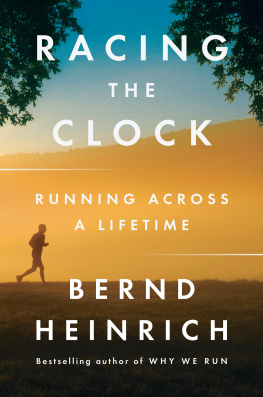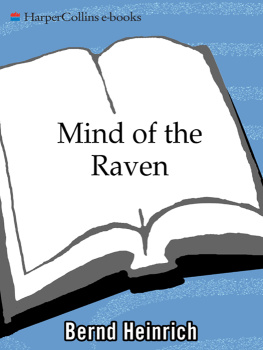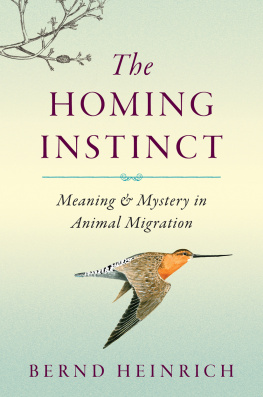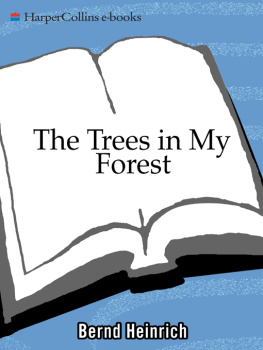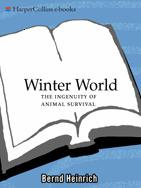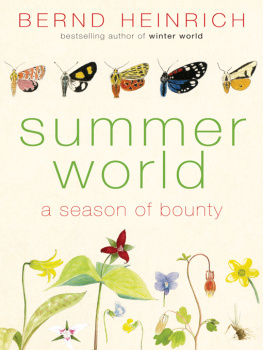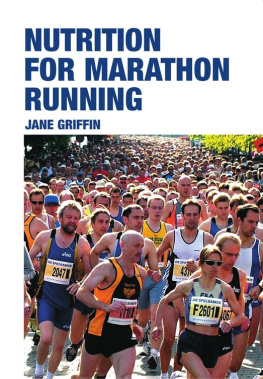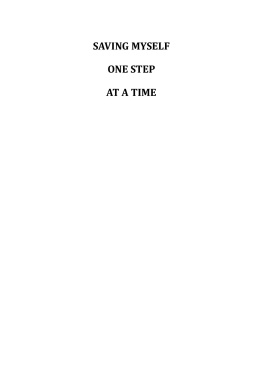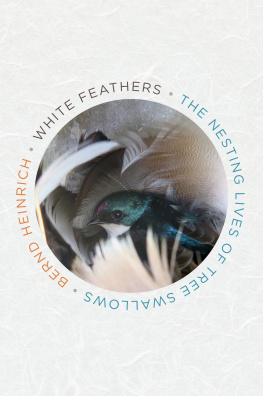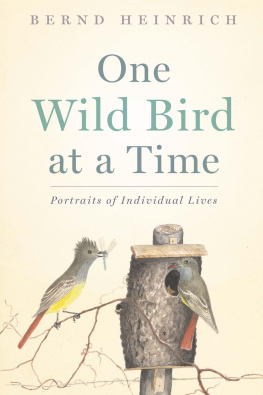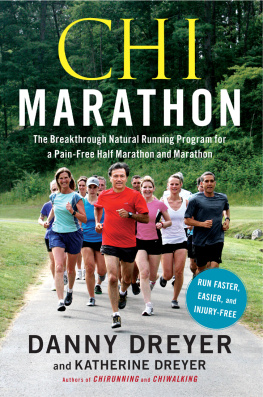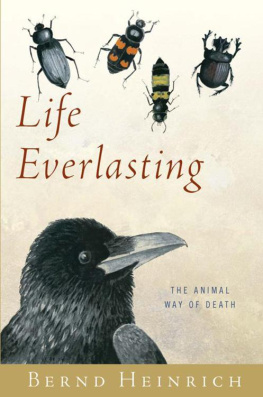Tell me and I forget. Teach me and I remember.
Involve me and I learn.
XUNZI
Contents
LIKE MANY OTHERS, I WRITE IN A DIARY TO KEEP TRACK OF THE passage of time by what is going on in my life. Runners write to see if theyre still on course to reach a goal of running a certain distance in a specific time. Im loaded with a double goal: I had proposed to myself to run a 100k at age eighty and set an age-specific world record doing it, using myself as a guinea pig and then writing a book about it.
Im mostly a biologist, and observing the nature around me, asking questions, and doing experiments has been my lifes work. Im always on the lookout for suitable subjects. Ive experimented on sphinx moths, honeybees, bumblebees, butterflies, syrphid flies, dance flies, giant dung beetles, dragonflies, winter moths, crows, ravens, sapsuckers, iris flowers, American chestnuts, red squirrels, and more, then published my discoveries. The older I have become, the more it has struck me how much all of life has in common. We are all kin. And so I sometimes apply what I learn to us humans and have experimented on myself to test a variety of racing fuels, such as honey, cranberry juice, olive oil, chocolate ice cream, beer, baby food, and yeast rolls, preferably each with multiple trials (excluding an inadvertent one during a twenty-four-hour race on cranberry juice that was sweetened with a chemical other than sugar). Aging is also a trial of one, and Ive been at it now for seventy-nine years. I proposed to document my attempt to run that 100k soon after my eightieth birthday, on April 19, 2020.
But right now, Im sitting on my couch next to the woodstove in the mountainous, near-endless forest of western Maine, where Ive lived continuously for the past ten years and which was my spiritual home for about sixty-five before that. It is snowing hard, and the wind is blowing. Glancing at my calendar, I see that Im already eighty years plus three days old, and also see the 100k race target date and place, April 26 at Lake Waramaug in Connecticut, entered there last November. However, weve been months in lockdown because of the global pandemic. Last week even the Boston Marathon was canceled. Leaving aside COVID-19, I was already out of the running by the end of November, after I chased a deer one afternoon in the first big snowstorm and ended up in the rocky crags of Houghton Ledges, on a mountain adjacent to the cabin where I live, with an ankle injury that still precludes serious running. As I am now incapable of even conceiving of running 100k at one stretch, my daily diary is tilted toward what I see nearby in the woods. This morning at 4:46 a.m., still in the dark, I noted, All is snow-covered. Seems like midwinter. But just now the woodcock, more commonly called the timber doodle, is out there in my clearing in the woods on the snow. He is announcing his presence at dusk and dawn by a repetitive peenting call while perched on the ground, to then perform one after another of his spectacular sky dances, as though nothing had happened despite the snowstorm yesterday and last night. I wonder what else will be up when daylight comeswill the Phoebe, the Hermit thrush, the Winter wren that came back probably too early retreat south, or will their biological clocks not allow them to change from their normal schedule of being here now to sing and to nest?
Science is a search for authenticity and proof. At least in physics, chemistry, and perhaps astronomy, that is revealed, or presumably achieved, in part by the aid of mathematical formulae, which do not concern time directly (Einsteins famous formula of energy equals mass multiplied by the speed of light squared does so indirectly, since speed is a function of time). But to us, time is an almost universal and viscerally felt component, life is anything but certain, and it is as true as the law of gravity that literally everything in life concerns time. There would not have been any evolution, not even a virus or a cell, without time: no birth, no dying. Time is at the root of our lives, and there are always currents simultaneously pushing and pulling us from various directions whose outcome can be explained by the laws of physics and chemistry.
I am awed by the way trivial incidents, which happen continuously, have profound influences as they ripple down seemingly to the end of time and how each road closed can create a time to reevaluate and open a new one, to reveal other possibilities that could not even have been encountered or thought of before. Every day is a potential disaster or an opportunity.
To paraphrase the poet Robert Frost, I still have many more miles to go and promises to keep. However, my original plan of running a 100k ultramarathon is not going to happen. Im realizing at age eighty that I no longer feel the fire, the need to do that one specific thing regardless of the circumstances and the consequences. Who knows how long the COVID-19 lockdown will last? It may outlast me. I can now do some other things better than run, and Ill take that.
After seeing the writing on the wall and having been given more time, since I didnt need to do my daily twenty-mile training run, I reached back in memory, rummaging among a stack of paper-filled cardboard boxes piled up under the cabin eaves. They hold jumbles of notes from courses taught, background material of books written, research done, notebooks and letters, and lots and lots of running files dating all the way back to my cross-country days as a junior and senior during my six years at the Good WillHinckley Home Farm and School in Hinckley, Maine, a school for kids without homes.
One of the boxes was inherited from my parents and recently passed on to me by my sister. I had not seen it before. It contained all the letters to and from my parents ranging over the twenty-eight years I had been separated from them, starting at age twelve at Good Will. In my letters to Papa and Mamusha (as we called our Polish-German mother), I had complained because my housemother had forbidden me to write in German, after she had found me doing so. Papa wrote letters that were first in German and like mine later, in English. They were longer than some of my research papers, and in one he wrote, I am sorry and sad you dont like it [there]. There are always such times in ones life, but later one comes back to ones hobbies; maybe you should try sports.
Another letter I had written to Mamusha was dated April 9, 1956. I had been there for four years. It was, as were all my letters at that time, written in German, and I started it by telling her that my knife was now fixed (I was mixing languages by then) and that it had a good point so that I could again throw it as before. I was then in the American frontiersman pioneer in the wilderness stage of my developmental cycle. I also told her that the snow had just melted and that many robins, tree swallows, song sparrows, crows, and even a killdeer were back, and indirectly that my bees, which I had hived from a bee tree the previous fall, had survived the winter in the hive, because on Thursday I had gone to be near them and got stung on the back of my head. I also wrote, Freitag bin ich nicht in die Schule gegangen aber in den Wald (Friday I did not go to school but into the woods) and da bin ich in ein stream gefallen (there I fell into a streamthe German would have been Bach) that I had tried to jump over. I had then found a dry spot, undressed, and lain naked in the sun and almost fallen asleep. My letter is written in pencil, but in the blue ink in my mothers handwriting at the top of the first page is a curt note saying that a week later Bernd weg gelaufen (Bernd ran away). There was no mention that two days later I arrived back home at the farm. The day after I had run away from school, she noted that I had been taken right back to it. The one-way distance from that home to the one I felt was my real one had been a bit more than that of a marathon. It did not exhaust me but instead made me hungrier for the woods. The farm had been planned only as a stopover, to the destination I presumed to be the endless woods about twelve miles beyond (the very same where I have now been living off-grid, off and on for forty years). Living in the woods in a homemade log cabin, living off the land like the pioneers, was something we learned about in school, and it seemed the coolest thing I had learned so far. But at the time I could only dream of it.

